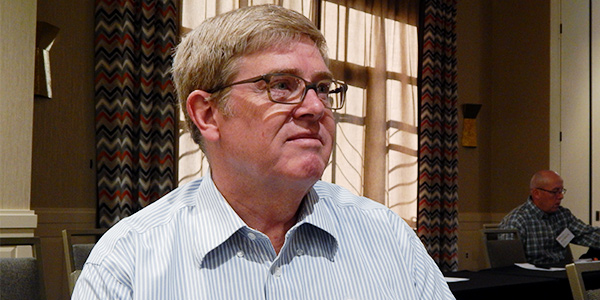SPP’s internal Market Monitoring Unit last week released a white paper detailing a study of generator self-commitments in the market, yielding further evidence that the self-commitment of generation exerts downward pressure on marginal clearing prices.
The MMU said that while the practice can’t be eliminated, it can be “substantially” reduced.
“A smaller distortion will likely help market participants make better short-run and long-run decisions, which tends to coincide with improved profit maximization. Enhanced profit maximization combined with effective regulation and monitoring will likely lead to ratepayer benefits in the form of cost reduction,” the Monitor said in its report, “Self-committing in SPP markets: Overview, impacts, and recommendations.”
The MMU recommended that SPP’s market design be modified to include one additional day of optimization and that the RTO and its stakeholders reduce the incidence of self-commitments to improve price formation and market efficiency.
“Simply eliminating self-commitment without any additional changes could result in an increase in total production costs,” the Monitor said. “When lead times were shortened to reflect an additional day in the market optimization and self-commitment was eliminated, producers were paid more and production costs declined.”
The study echoes recent work conducted by the Sierra Club and the Union of Concerned Scientists. The environmental groups have both studied regulated utilities’ practice of self-committing coal plants, which they say is costing ratepayers hundreds of millions of dollars. (See Enviros, States Question Coal Self-commitments.)
The MMU analyzed offer behavior from March 2014 to August 2019. It ran two simulation series of a week per month for the year leading up to August in which it resolved past market cases.
The study found prices and production costs were “systematically lower” when at least one self-committed unit was marginal. In almost all cases, the MMU said, self-committed generators had lower revenues because of negative congestion prices, while market-committed generators typically had a more balanced congestion profile.
Resources with long lead times and/or high start-up costs tended to be self-committed instead of market-committed, the Monitor said.
The simulations assumed all generation was offered in market status, and that generation offered in market status can be started economically by the day-ahead market.
Board Appoints Stakeholder Group Chairs
The Board of Directors on Dec. 9 appointed chairmen for eight of SPP’s stakeholder groups:
- Grant Wilkerson, Evergy, Business Practices Working Group
- Alan Klassen, Evergy, Operating Reliability Working Group
- Robert Pick, Nebraska Public Power District, Regional Tariff Working Group
- John Allen, City Utilities of Springfield, Reliability Compliance Working Group
- Jim Jacoby, American Electric Power, Seams Steering Committee
- Phil Clark, Arkansas Electric Cooperative Corp., Security Working Group
- Brad Hans, Municipal Energy Agency of Nebraska, Supply Adequacy Working Group
- Nathan McNeil, Midwest Energy, Transmission Working Group
The chairs were nominated to two-year terms that begin in January by the Corporate Governance Committee. The CGC annually accepts member nominations for about half the stakeholder group chairs.
The board also approved changes to 13 stakeholder groups’ charters during a conference call otherwise reserved for a review of membership surveys and corporate metrics. The board’s evaluation by directors and members resulted in a split, with average scores dropping for half the 12 questions and rising for the other six.
Asked to list issues of focus for the board next year, members settled on CEO succession, expansion in the West and effective implementation of the Holistic Integrated Tariff Team’s (HITT) recommendations.
Seams Group Lays out 2020 Work Priorities
The Seams Steering Committee on Wednesday determined its work priorities for 2020, with a prime focus of providing policy direction as cost allocations are determined for seams projects that don’t qualify as interregional projects. The item was a carryover from 2019, when it was tabled to wait on the HITT’s recommendations.

October’s market-to-market summary | SPP
The SSC will also guide staff through coordinated system plan studies in developing seams projects with MISO and Associated Electric Cooperative Inc. It will also continue to facilitate design and development of a new type of transmission project, coordinated with MISO, to address historical market-to-market (M2M) congestion.
Staff reported that M2M settlements in October resulted in $3.65 million accrued in SPP’s favor. Permanent and temporary flowgates were binding for 1,068 hours during the month.
SPP has incurred $67.2 million in M2M settlements since the process began in 2015.
Sunflower’s Hestermann Elected WIRES President
Sunflower Electric Power’s Tom Hestermann has been elected president of WIRES, an international trade association that promotes investment in the high-voltage grid.

Tom Hestermann, Sunflower Electric | © RTO Insider
Hesterman, Sunflower’s manager of transmission policy regulations, succeeds National Grid’s Brian Gemmell.
“The critical importance of a robust and resilient grid multiplies” as transportation and heating move toward an electrified future and states continue to pursue aggressive renewable portfolio standards, Hestermann said. “WIRES will redouble our efforts to educate and advocate for advancements in North America’s transmission infrastructure.”
Other elected officers include: President-elect Brian Drumm (American Transmission Co.’s federal regulatory relations & policy and associate general counsel), Vice President David Weaver (Exelon Utilities’ vice president of transmission strategy), Treasurer Kelly Pearce (American Electric Power’s transmission asset strategy & policy managing director), and Secretary Dan Prowse (Manitoba Hydro’s Hydro Connections Department transmission access officer).
— Tom Kleckner




